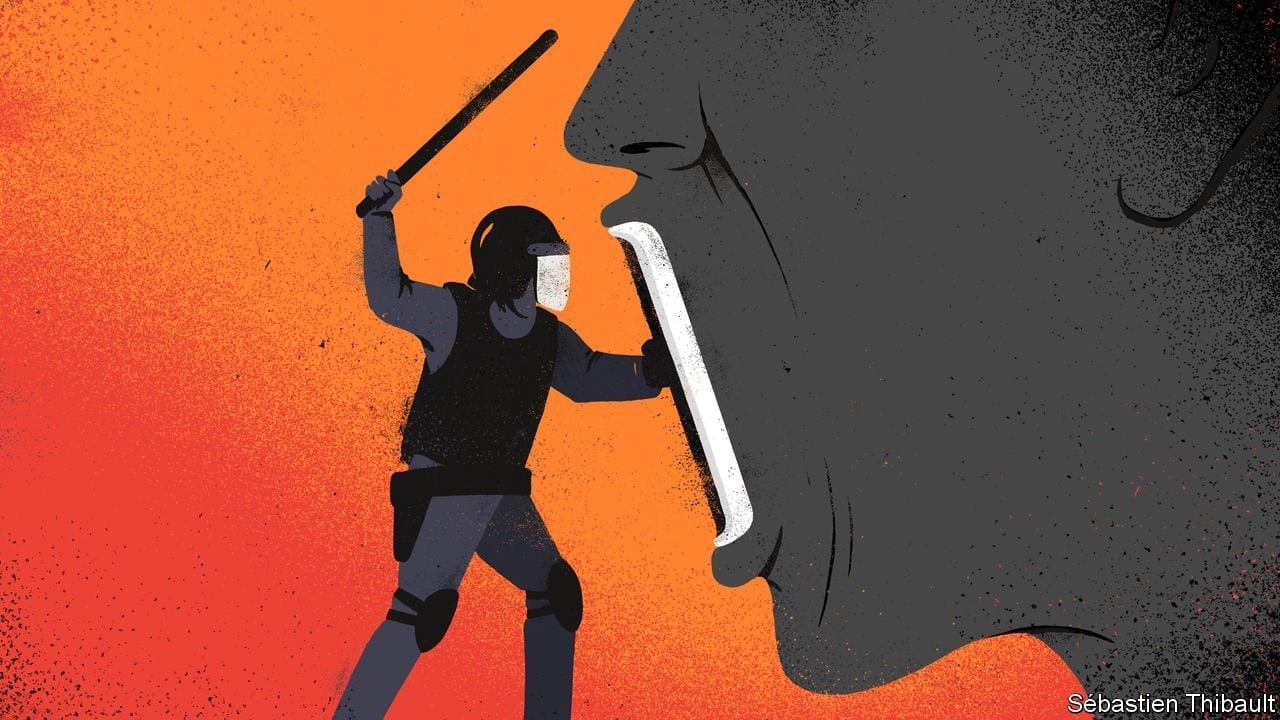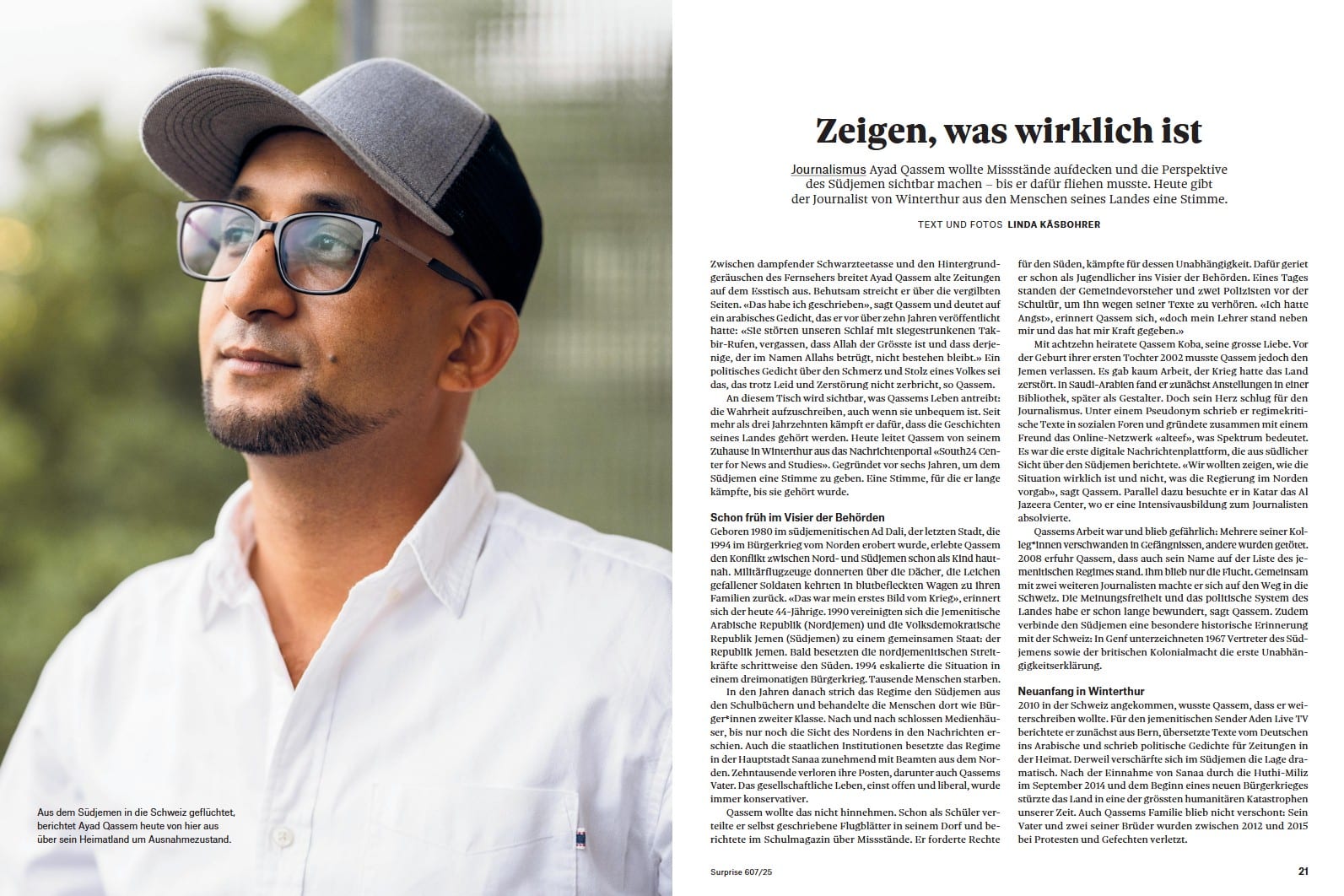
آخر تحديث في: 12-12-2021 الساعة 10 مساءً بتوقيت عدن
Abdullah Al-Shadli (South24)
The rate of violations against journalists in South Yemen increased between 2020-2021, with the war in Yemen entering its seventh year.
More than a year and a half after the AFP photographer, Nabil Al-Quaiti, was assassinated in June 2020, an explosive device exploded, in November, in the car of journalist Mahmoud al-Atmi in Aden, killing his wife, journalist Rasha al-Harazi, and their fetus, and seriously wounding her husband.
The suspects identities in Al-Quaiti assassination were not revealed. However, sources in the criminal investigation in Aden revealed earlier to "South24", the accusation of four people suspected of being involved in the assassination of Al-Quaiti, who were arrested and later released. "They were linked to the military leader, who is close to the Yemeni presidency and the Islamists Amjad Khaled" they stated. (1)
While press sources suggested that the Houthis were behind the bombing of journalist Mahmoud al-Atmi's car, these accusations have not been confirmed by any official sources yet.
Three other journalists were killed in a bloody explosion targeting the convoy of Aden governor Ahmed Lamlas on 10 October.
Hadramout and freedom of the press
In Hadramout governorate, to the east of Aden, violations of journalists rights are significant indicators that raise red flags. In Shabwa governorate, journalists have been arrested during the past two years by pro-Islah security forces.
Press sources accuse the influential authorities and institutions in Hadramout of seizing freedom of the press, with the aim of "silencing mouths" and covering up corruption files.
The local authorities in Hadramout refused to enable journalists to investigate corruption files in the water and electricity departments, despite the governor's directives to allow them to do so, according to press sources who spoke to "South24".
Local authorities are exploiting laws that human rights activists describe as “repressive” in their accusations against journalists and activists, through the use of Articles (125) and (126) of the Yemeni Crimes and Penalties Law of 1994.
Article (135) of the Crimes and Penalties Law states: “Any person who advocates or incites not to apply or abide by the laws in force shall be punished by imprisonment for a period not exceeding three years.”
While Article (136) states that “whoever disseminates false news or statements or any exciting propaganda with the intent of disturbing public security, spreading terror among the people or harming the public interest, shall be punished by imprisonment for a period not exceeding three years.”
These laws represent additional tools in the hands of the official authorities in Yemen, to suppress freedoms and retaliate against opponents in accordance with the Yemeni Penal and Crimes Law.
The arrest of the journalist at the command of the 2nd Military Region, Abdullah Bakir, topped the scene in May 2020.
Photo: A protest event in solidarity with the released journalist "Abdullah Bakir", in July 2020 (activists)
The local authority in Hadramout placed journalist Abdullah in front of a number of charges, one of which was his "violation of military law", according to a statement issued by the official spokesman for the 2nd Military Region, without clarifying the nature of those charges.
Judicial sources, who requested anonymity, criticized these violations. They considered, "this is a decline in the level of prosecutorial work in Hadramout."
In April 2021, journalist Abdullah Bakir was released on bail, without disclosing the charges against him.
Last November, the Specialized Criminal Court of First Instance in Mukalla announced that journalist Abdullah Bakir was acquitted of all charges against him.
"South24" tried to contact Abdullah to find out the nature of these accusations, "but he refrained from responding, indicating that the case would be appealed."
Abusive actions
Sources in the Hadramout Appeal Court denounced the violations against journalists in the governorate.
The sources said that "journalists should not be treated in this way, and they must be verified and approved by a special system that the state deems appropriate to confirm the accusation in accordance with the law."
The sources add, "if the procedures are arbitrary, they may not be accepted."
The official authorities have not yet responded to these criticisms.
Last March, military intelligence services arrested the young-man Omar Bahshwan, because of his posts on his Facebook page, before he was released from Mukalla Criminal Court on a financial guarantee, after the Public Prosecution charged him with “disturbing civil peace”, as Bahshwan claimed in an interview with "South24".
The Hadrami activist said that he "spent about a month in the intelligence prisons, and completed the remaining period in the central prison in Mukalla."
"South24" attempted to communicate with the official authorities in the governorate to find out the validity of these accusations but they did not receive a response until the time of writing this report.
The December, "Hadramout News" newspaper editor-in-chief, Imad al-Diny, was harassed by Hadramout TV, for his post on his Facebook page in which he criticized the channel.
The channel's administration filed a complaint against the religious journalist, through the head of the Mukalla Appeal Prosecution, Judge Shaker Bennish - who was referred to the Judicial Inspection authority by the Public Prosecutor - and sent a summons through the Mukalla Police to al-Diny.
According to the Morakipon (Observers) Press Foundation, the channel's administration resorted to filing a judicial complaint in its name before a non-specialized prosecution in Mukalla against al-Diny.
In a statement, they considered that the Public Prosecution's acceptance of that complaint was “a shocking matter” and included an attempt at what it called “an unacceptable confusion and an unacceptable jump” on the jurisdiction of the judicial system, stressing that this is a grave violation of the effective Press and Publications Law No. 25 of 1990. (2)
The jurisdiction of the prosecution!
In the absence of the role of the Press and Publications Prosecution in Hadramout, the Public Prosecution in Mukalla summoned journalists after they exposed corruption information in educational institutions, and demanded that they be held accountable; Although they are not qualified to do so according to the Yemeni Press and Publications Law of 1990.
The head of the Public Prosecution Office of the Hadramout Appeal, Judge Shaker Bennish told "South24", that the Public Prosecution is "the responsible one, and it has the authority and the mandate to investigate and file a criminal case...whether with the politician or the journalist." "The Traffic Prosecution, the Public Funds Prosecution, or the Press and Publications Prosecution, all of which are within the framework of the Public Prosecution," he said.
Bennish explained that the Specialized Criminal Prosecution is the only one specialized in "crimes of terrorism and crimes of trafficking and selling drugs only, and other than that, it follows the Public Prosecution."
Journalist Majed Al-Daari, head of the Morakipon Press Foundation, told "South24" that "the Public Prosecution does not differentiate between a journalist" and a "Facebook influencer" and does not bother to summon even for a Facebook post and to pursue them by security, and to extract illegal pledges from them to not return to writing.
Al-Daari attributed this to the absence of justice, misinterpretation of the law, and the prosecution's attempt to use an authoritative “repressive tool” to silence and prevent them from expressing their opinions and criticizing corruption in society, as a right guaranteed to them by the constitution.
In his interview with "South24", Judge Bennish said that "the prosecution is investigating in accordance with the Press and Publications Law, but what some publish on their personal pages including Facebook" is not considered a journalist's work.
According to Judge Bennish, "the Press and Publications Law is concerned with paper journalism only so far" and does not include, as he says, "electronic journalism." But "however, if the press website is licensed, the law will treat it as a newspaper."
For its part, the Public Funds Prosecution in Mukalla claimed that a journalist has no right to publish what it described as "offensive news" even if evidence is available.
A source in the prosecution told "South24", "the journalist must file a complaint with the Public Prosecution if he has evidence that condemns certain parties or individuals," considering that anything below that is considered "defamation."
Journalists and activists in Hadramout consider their freedoms of expression to be "restricted", especially since it comes without judicial orders; This prompts many of them to not criticize the reality around them and to avoid going into it in order to avoid any prosecutions.
Journalist at South24 Center for News and Studies

قبل 3 أشهر

قبل 3 أشهر